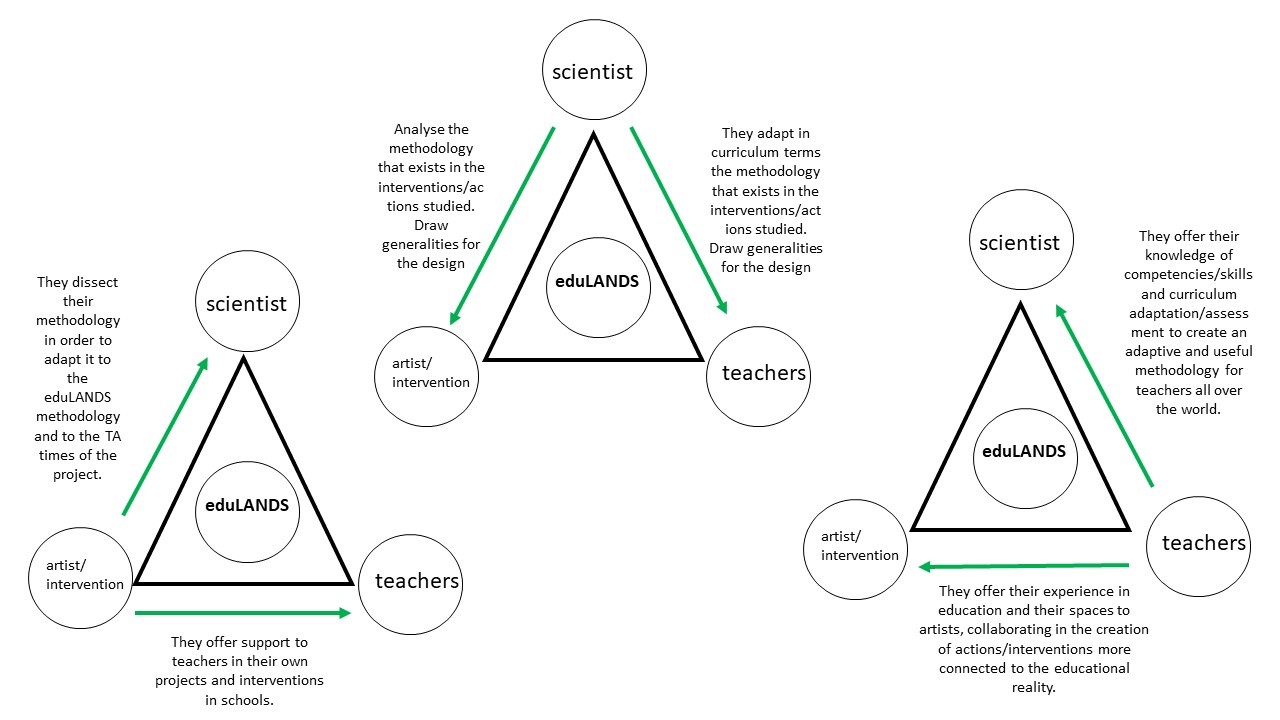

The first Training Activity organised by eduLANDS for transitions took place on 27, 28 and 29 April 2022 at the Cuatronaranjos Active Primary School (first day), at the Poeta Julián Andúgar Secondary School (second day) and at HuertoLAB (Santa Eulalia), all of them in Murcia.
This conference was a big step forward for eduLANDS, the team members had just held their first Transnational Partners Meeting (25-26 April) and holding a TA associated with this meeting allowed them to put into practice some terms that until then had only been dealt with at a conceptual level (perhaps the most obvious case is that of mapping).
The eduLANDS team arrived at Cuatronaranjos around nine o'clock in the morning. The first session was led by Irene Lucas and Conchi Meseguer.
The main objective was to "dive" into the context of the training activities and discuss the resulting map of the days covered by TA1. It was considered that the most appropriate tools to carry out this activity were questionnaires and presentations of each team's problems and solutions adapted to each school or institute to be analysed.
The idea of conducting questionnaires was based on the need to see and understand the context of the different schools, to reflect on the school staff, the location and the physical spaces inside and outside the school. The team was inspired by their previous experience at the Neue Mittelschule Koopstraße (Vienna), where, together with the teachers, three axes were defined to focus the research around the schoolyard:
The aim of this action was to understand each school as a specific case study.
On the other hand, mapping all concrete situations, developing patterns associated with the eduLANDS tools (i.e. following the logic of the Pattern Language) and generating common concepts as they emerged, was the roadmap established to extract the problems and possible solutions for each school analysed.
One of the most striking things about this activity, apart from its content, is that it did not take place in a meeting room or an ordinary classroom, but the eduLANDS team also made use of the playground of the Cuatronaranjos School.
The aim of this session was to draw conclusions about what was around the school: initiatives, important places for the pupils, assessing the heritage and environmental values of the landscape…, and all of this through a fun dynamic of games and activities.
The proposal was also to materialise the mapping work in the collective meal and provide concepts to inspire teachers to focus on future projects:
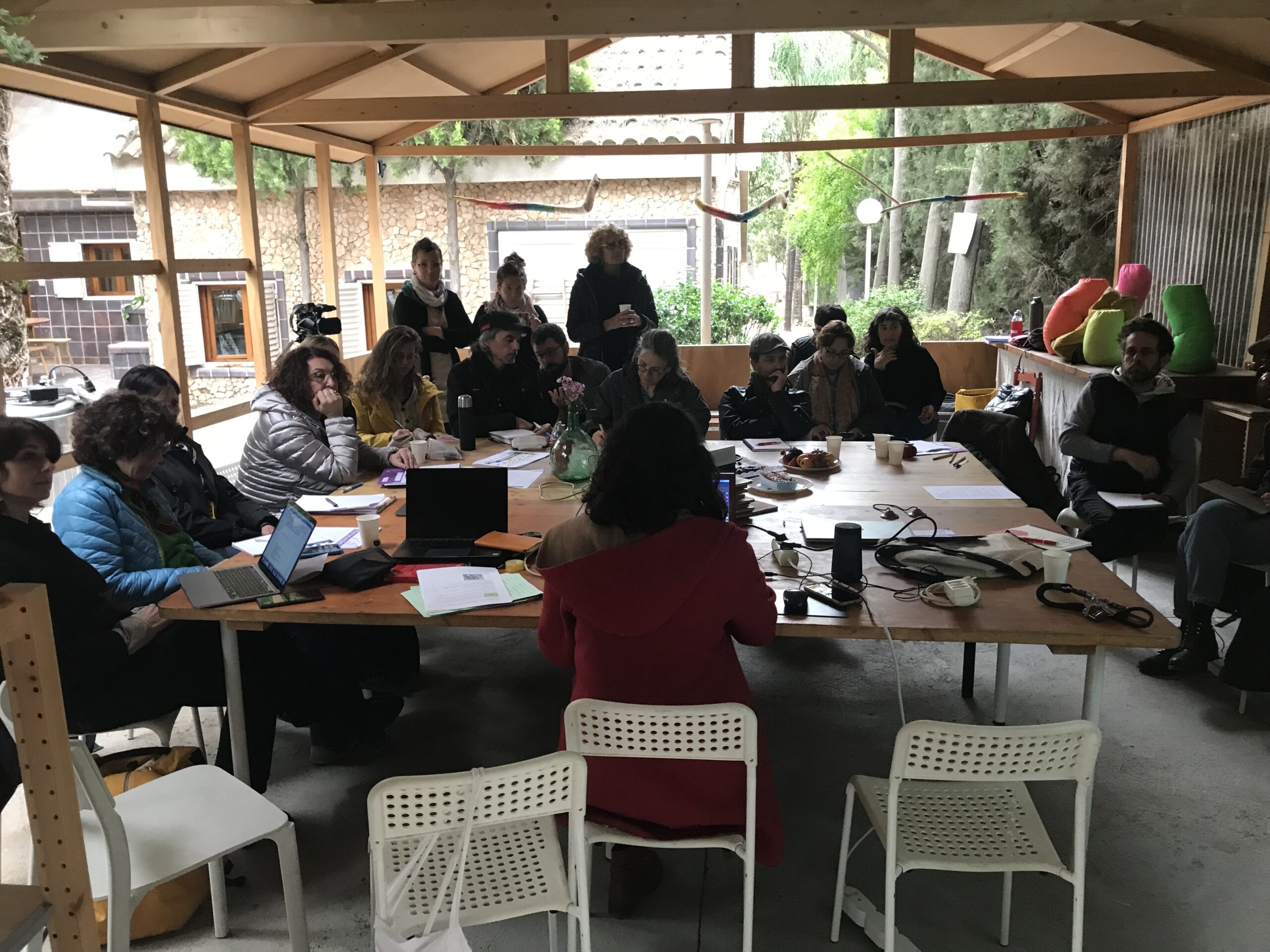
EduLANDS for transitions
After lunch in a bar near the Cuatronaranjos Active Primary School, the team returned to the centre to continue with the first day of AT1.
In a session moderated by Charlotte Fleischmann and Irene Lucas, they discussed how to map the internal structure of the school in connection with its environment and the community.
In this session a group dynamic was followed to investigate possible tools for mapping the problems and opportunities of cities in transition: the bio-region in which to intervene, cultural-emotional identity, identification and contact with stakeholders, useful information on stakeholders, stakeholder resources and what remains to be done to work on cities in transition.
The day ended with a walk around the vegetable garden near Cuatronaranjos (Red de Semillas y Huertos del Verdecillo y Los Pájaros).
The first day of Training Activity 1 left a map of conflicts and potentials around the eduLANDS project schools. Based on previous research with teachers (through surveys), a series of questions were posed involving the spatial representation of the school space and its immediate surroundings.
For each school (also including the Expanded Garden and Urbodrom projects), a different map was generated from the courtyard to the outside, with a series of questions that, in turn, have the potential to become initial questions for future eduLANDS projects.
The second day of TA1 took place at IES Poeta Julián Andúgar. The first session of the day was once again led by Irene Lucas and the main topic was the explanation of the pattern language to be used in the playground and the maps of the schools analysed the previous day (Expanded garden and Urbodrom).
This first session required two things to be very clear and to work accordingly:
The aim was to connect the eduLANDS team's intervention in the school playground with its immediate environment through the examples. Specifically in IES Poeta Julián Andúgar there were three good examples:
It was a working session with the same groups that were created the afternoon before in Urbodrom, which worked on the questionnaire and the playground maps of the participating schools. The aim was to generate a conceptual map of each experience.
During the session, the pattern language was discussed and deliberated with the teachers, as well as the language needed to determine categories and subcategories.
The team was always mindful of the need to establish effective links between the patterns, as well as the undoubted value of the feedback received from researchers in each specific setting.
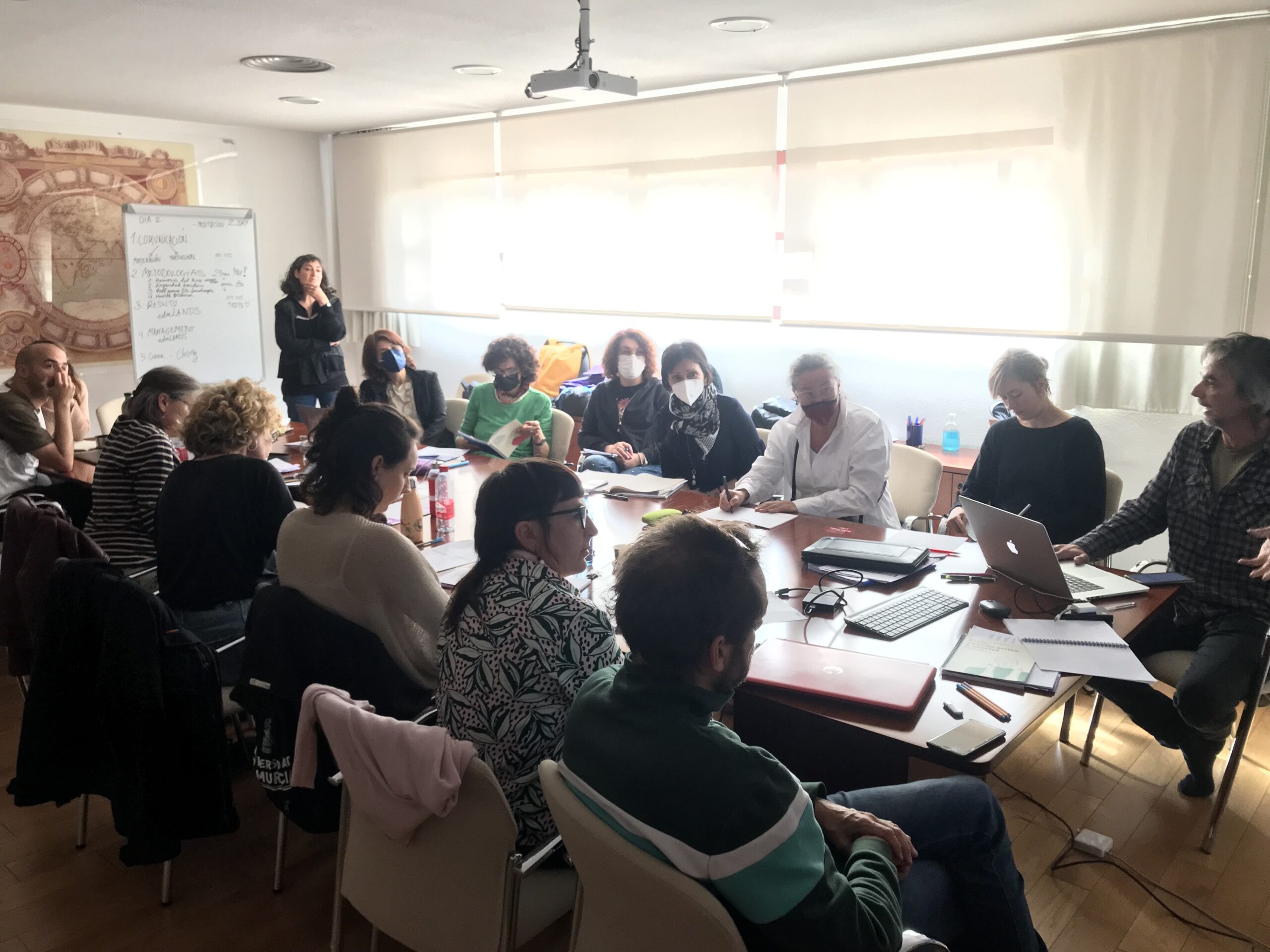
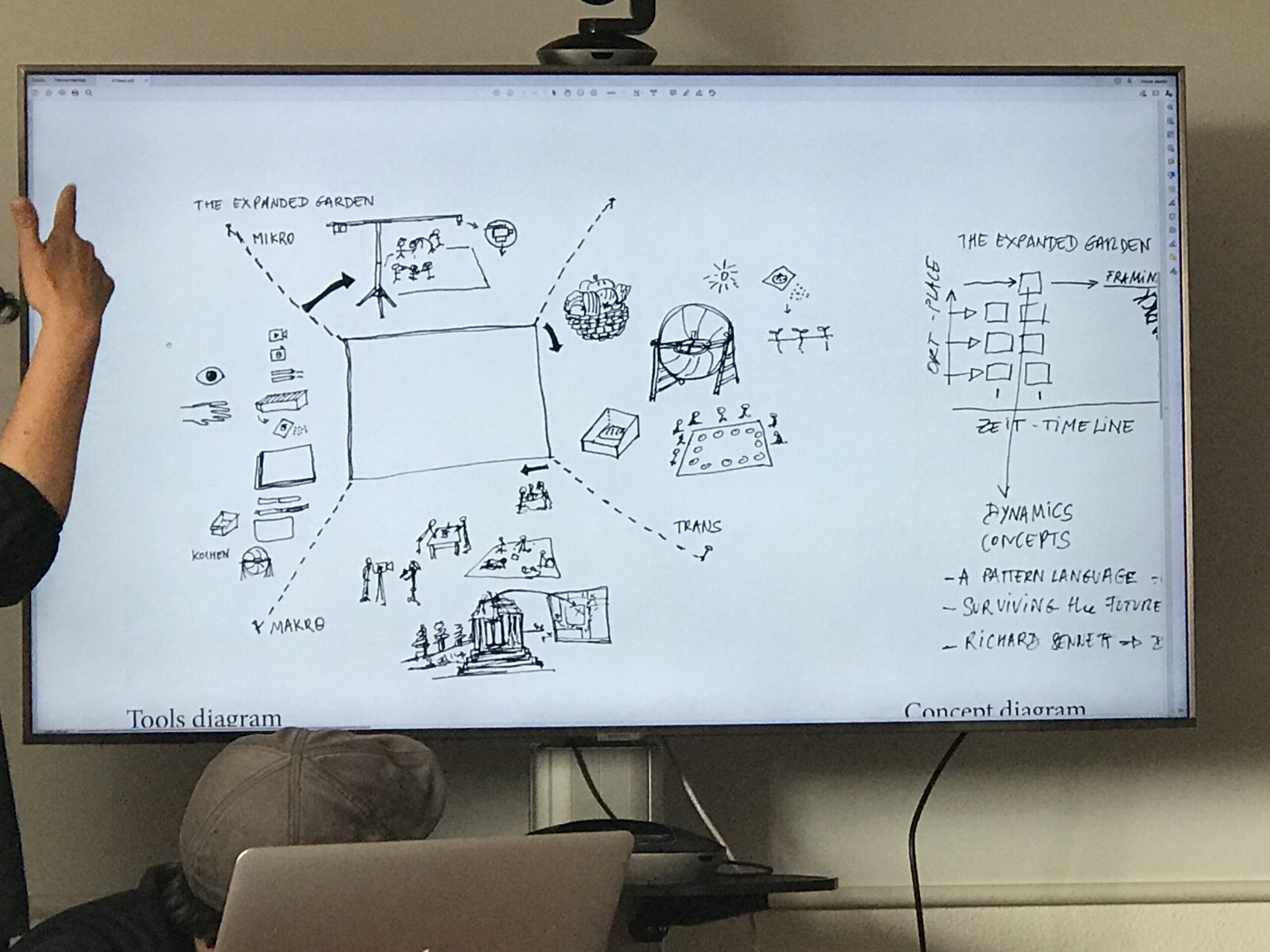
Use of the film Canalejas to induce the audience to participate in the subsequent active discussion in which it would be addressed:
The second day ended with an archaeological walk led by Miguel Pallarés.
The last day of TA1 started with a visit of our team to HuertoLAB, of the Colectivo Huerta Bizarra in Santa Eulalia (Murcia). It was coordinated by Daniel Caballero and lasted until half past ten in the morning.
At eleven o'clock, a map analysis and synthesis session was held by Irene Lucas, Sylvie Paradis and eduLANDS coordinator Mónica G. Candela.
The results obtained during the week in relation to pattern language and the pedagogical adaptation of eduLANDS to schools were briefly reviewed.
Rather, it was a sharing to answer questions such as "How to see the problems and possibilities we have? Solutions and resources? Time scale? How to include the interests of school children? How to be inclusive in communication?". Questions that had to be answered if valuable conclusions were to be drawn after five days of meeting.
The TA1 ended with a sharing of the results obtained during the experiences in relation to the maps.
They discussed eduLANDS' own pattern language and group dynamics to investigate with the teachers in the project in relation to the resources, structural problems and facilities of their schools when they start the mapping phase regarding the landscape and environment of their own schools in the First Pilot Experience (PE1).
The activity closed with a brief report on the course of the previous days and the development of Training Activity 1.
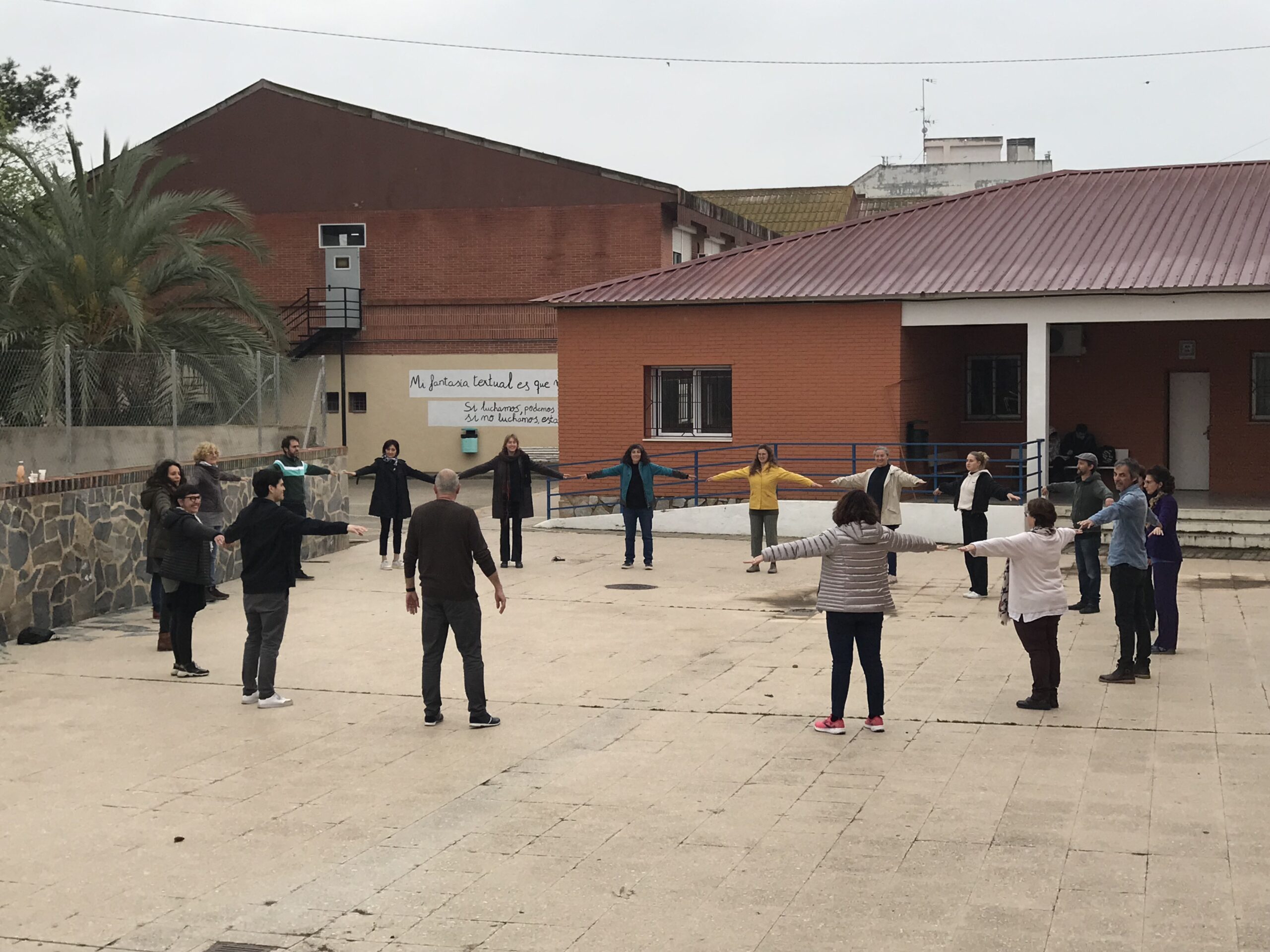
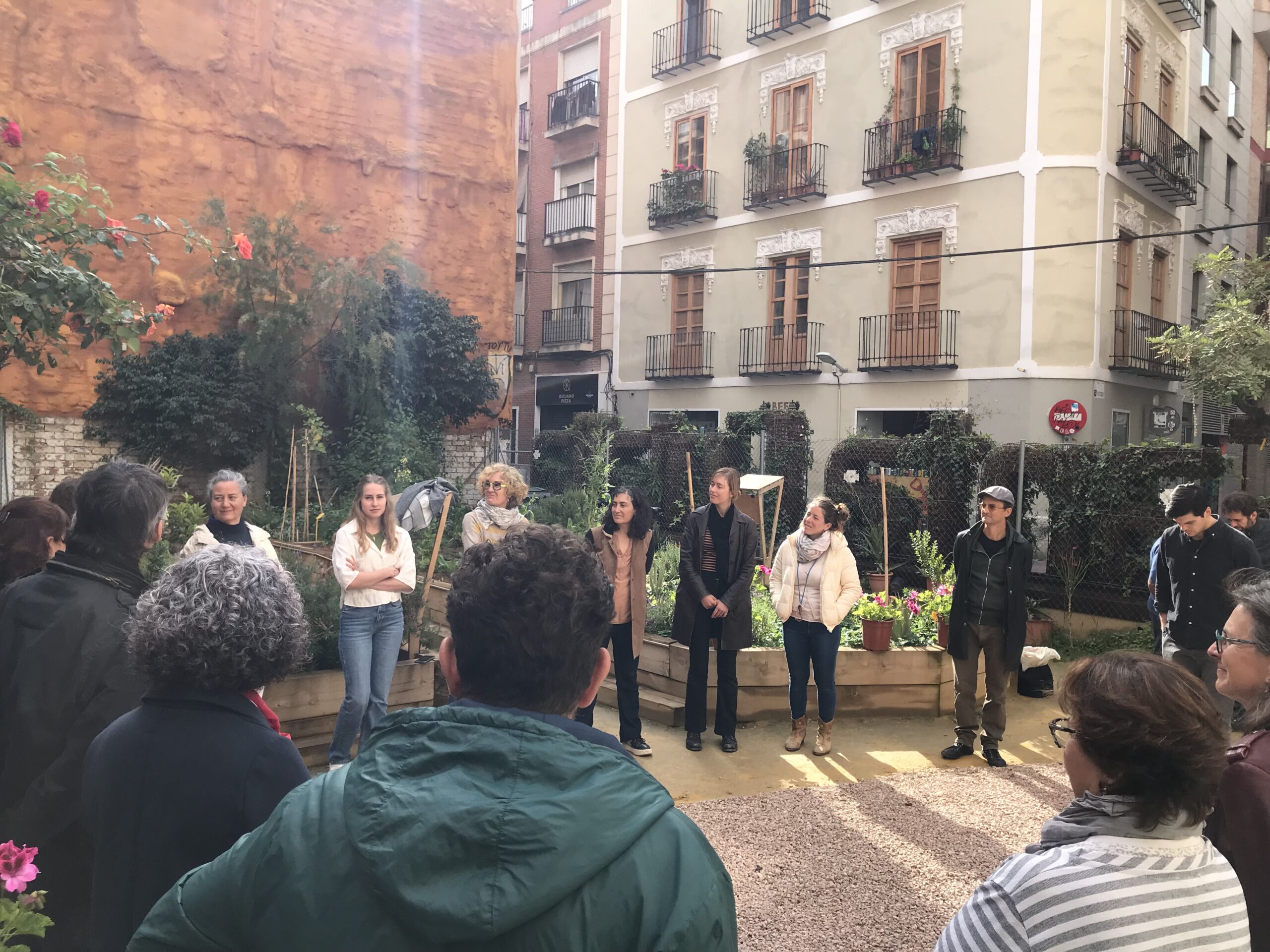
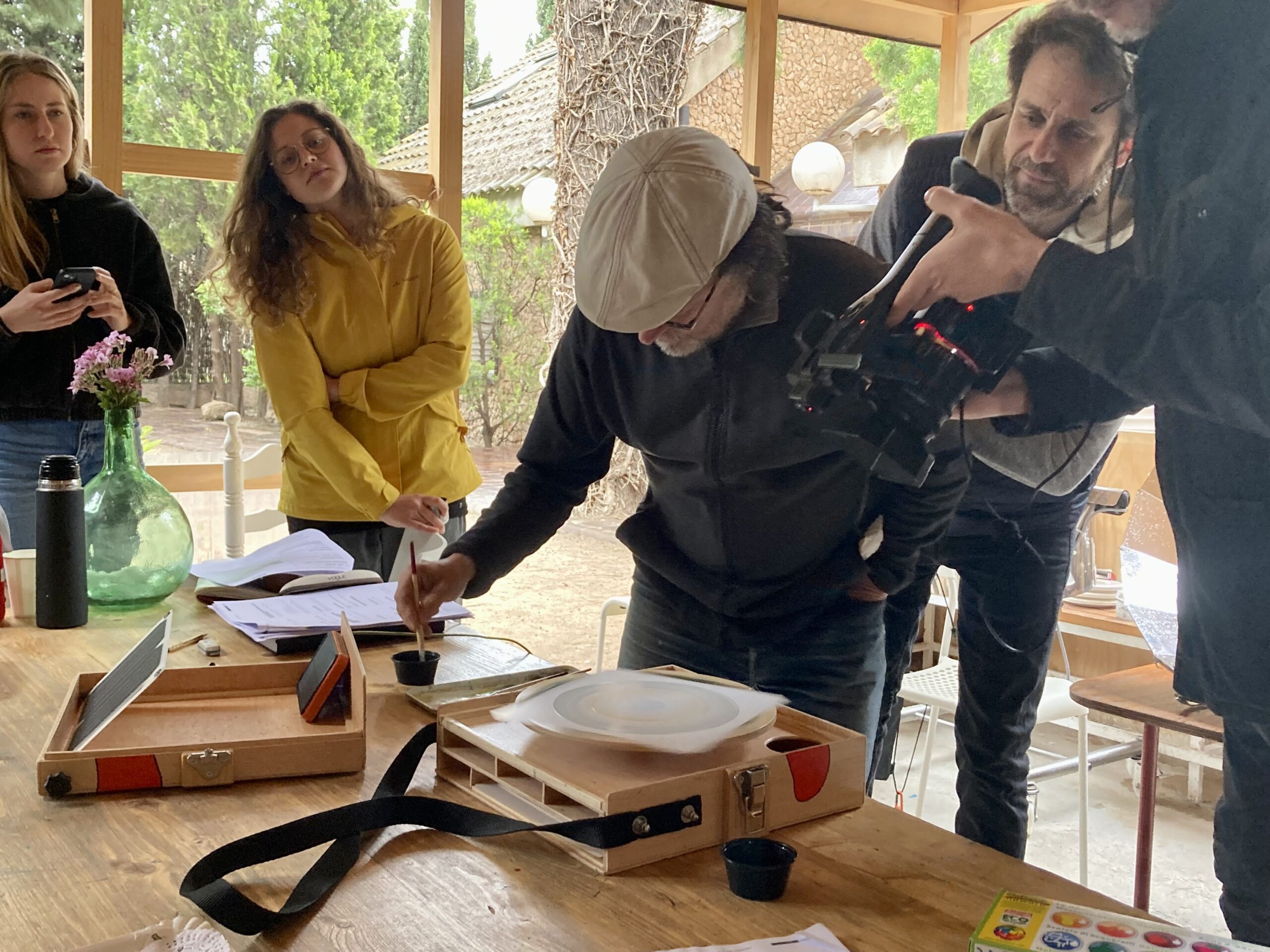
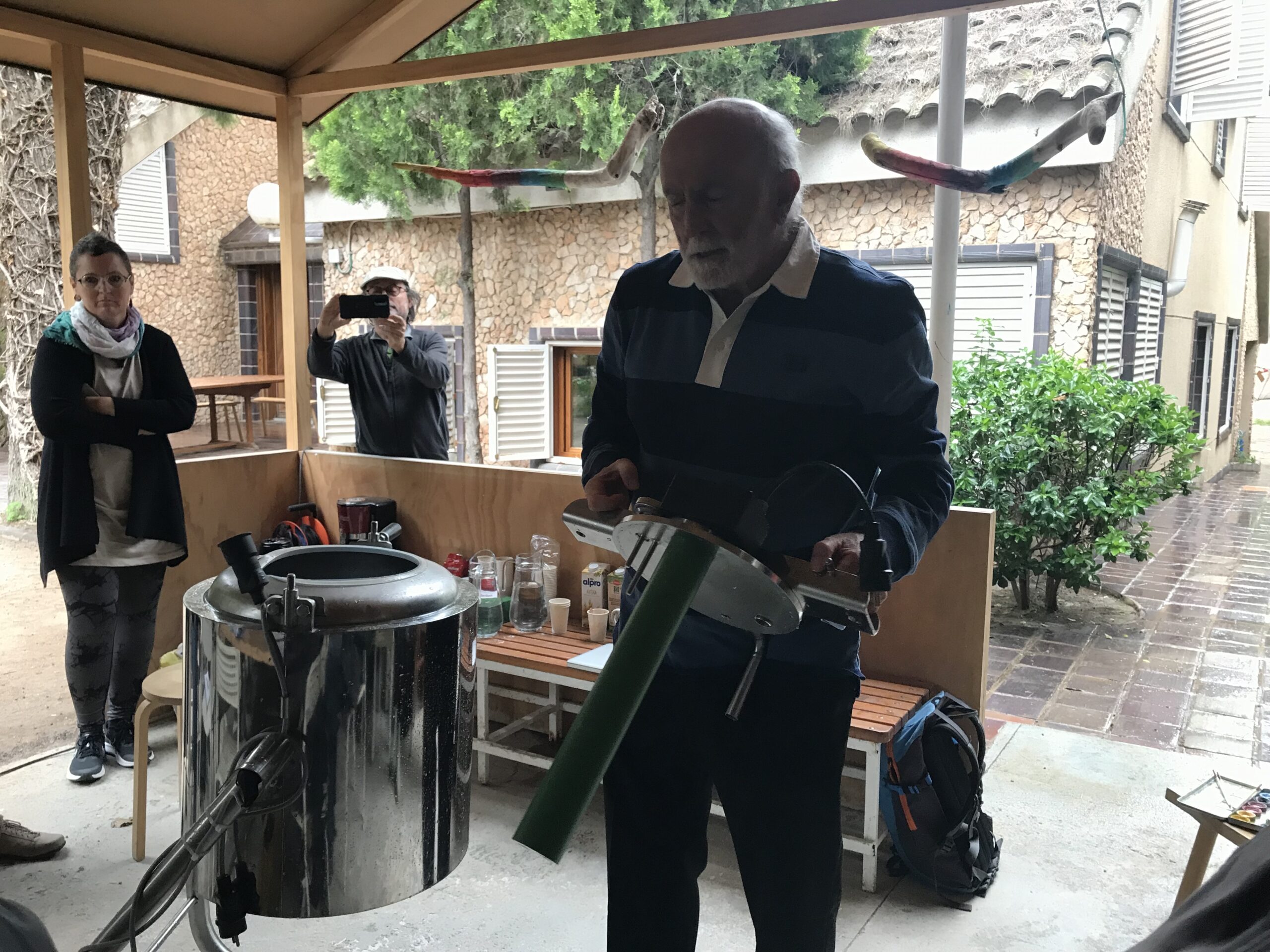
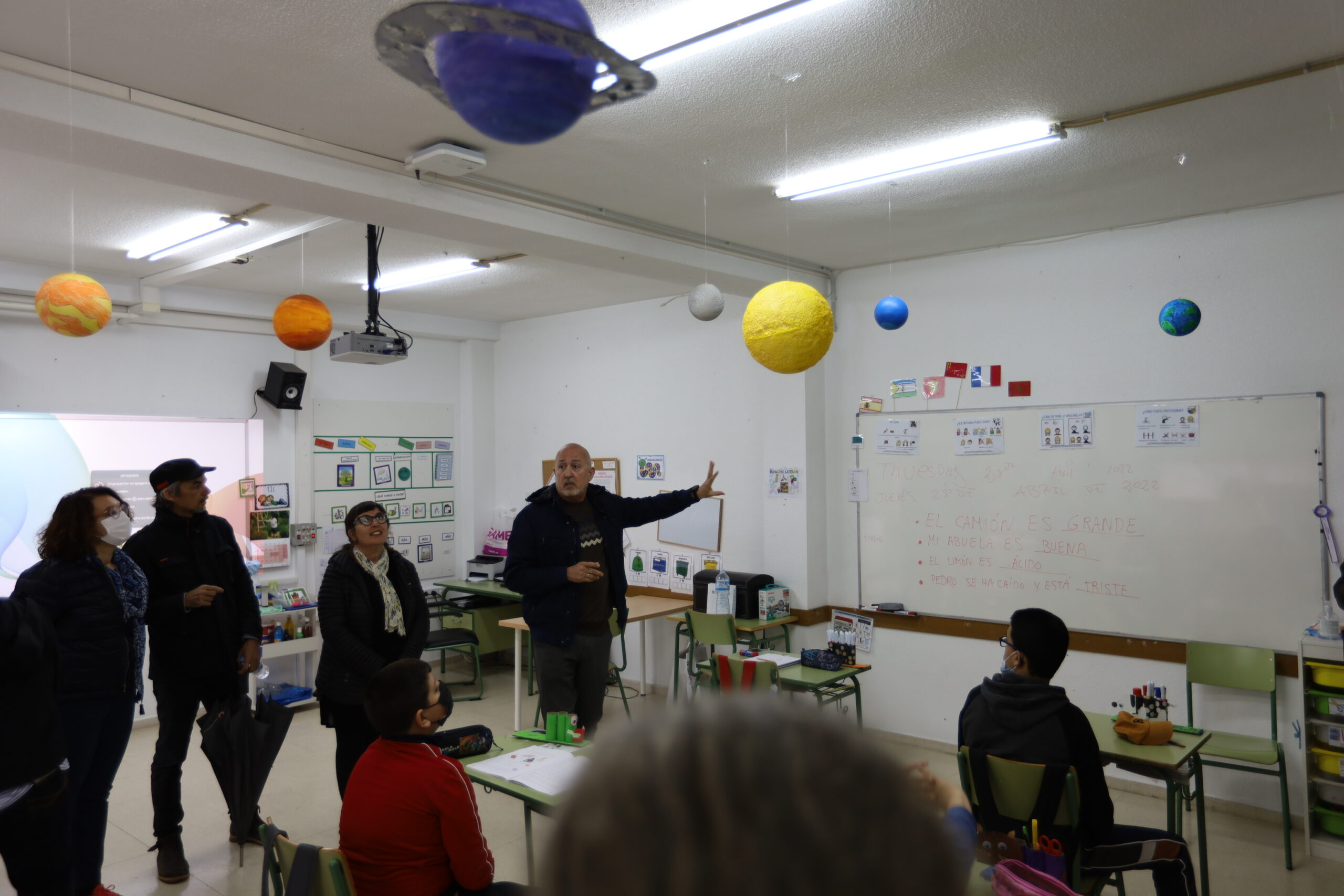

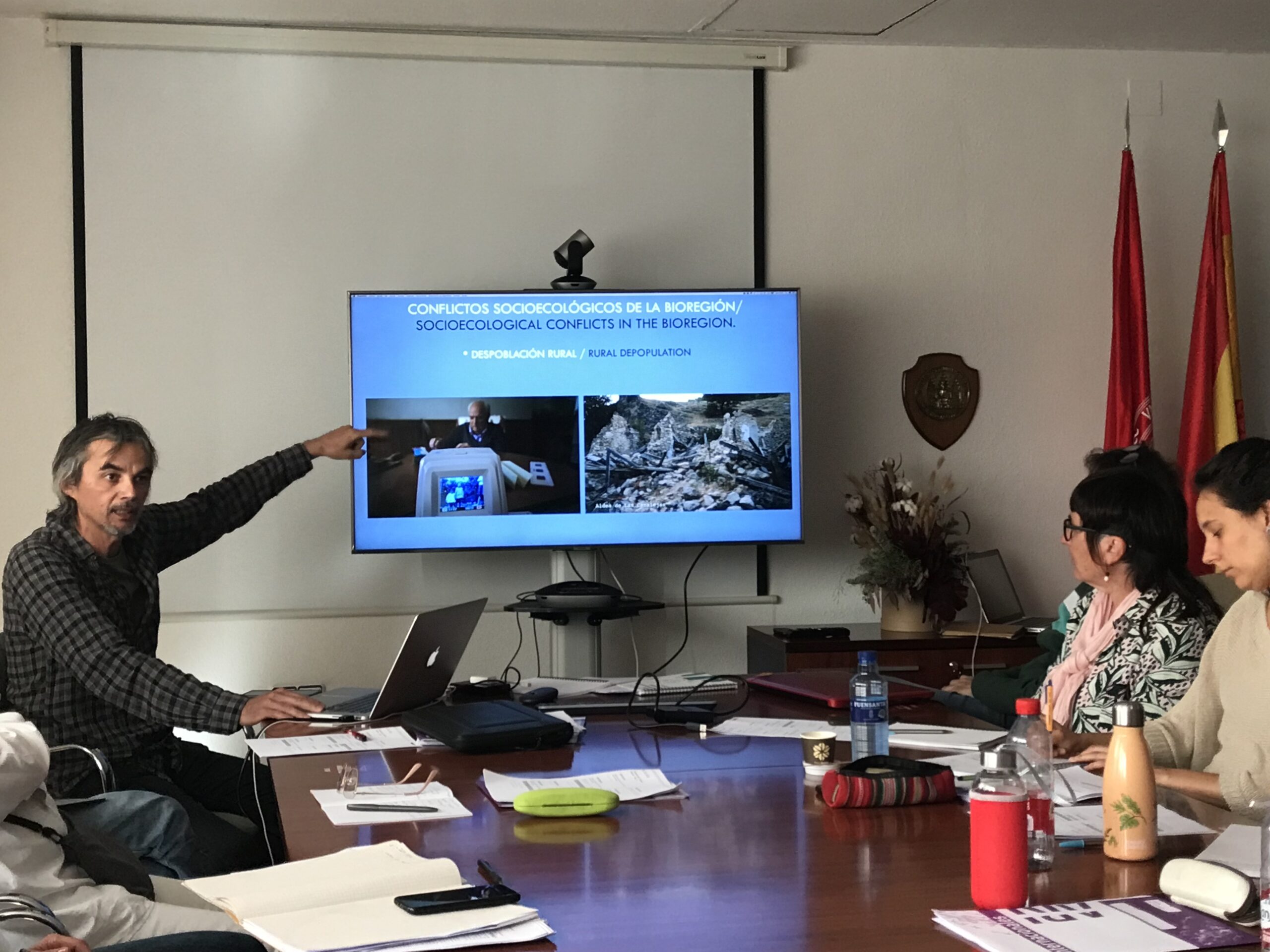
Transnational Partner Meeting 1 and its associated activity (TA1) allowed the eduLANDS team to draw conclusions about its own nature and the feasibility of the project.
In the words of Mónica G. Candela, coordinator and promoter of the project:
"As we have worked on multiple maps among the eduLANDS team, we now have a greater knowledge of ourselves within the team. Our future expectations will be based on this real-life experience".
"We have a project whose ambition is to create resources and a methodology that generates projects that connect the school and the surrounding landscape, including sensitive and artistic strategies. Now, in addition, we are a team of people, with very diverse visions, but whose skills can take this forward".
"We are a triangular team, in whose three vertices we distribute ourselves. This image of the triangle can be taken as a non-conclusive analytical exercise. The lines of input and feedback are between all of us".
